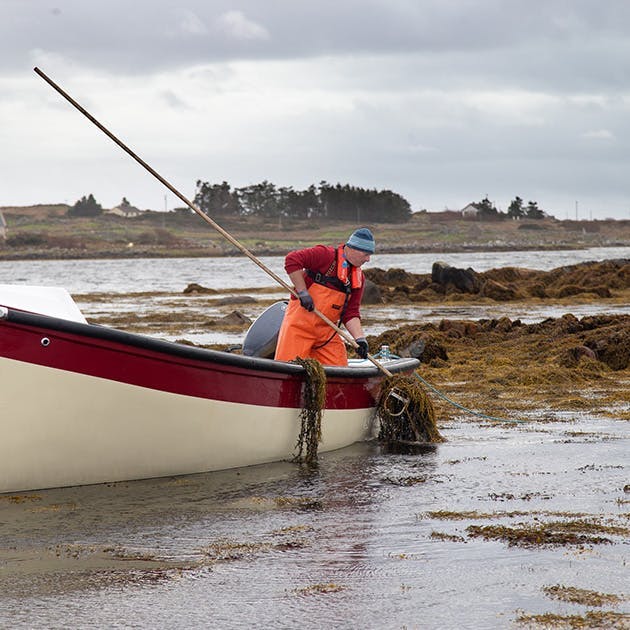

Seaweed is a natural input that has the potential to revolutionize agriculture
In the vast expanses of our oceans lies a treasure trove of potential - a solution to some of the most pressing challenges facing our planet today. Seaweed, often overlooked and underestimated, may very well hold the key to addressing the triple planetary crises of pollution, climate change, and biodiversity loss, while also offering solutions to food security.
A recent report by the World Bank and The Nature Conservancy has shed light on the immense potential of seaweed as a versatile resource with multifaceted benefits. From sustainable food and feed production to biopackaging, biomaterials, and even new medical solutions, seaweed offers a promising array of opportunities to tackle our most urgent global challenges.
One of the most exciting prospects highlighted in the report is the role of seaweed in biostimulants - natural inputs that have the potential to revolutionize agriculture in the coming years. The Global Seaweed Coalition, recognizing this potential, is committed to supporting and advancing this journey towards a more sustainable future.
“Our Global Seaweed Coalition is very excited to support this journey. The need for new natural inputs to support agriculture as well as the very convincing properties offered by seaweed with a strong track record over the last decades to increase plant resilience offers a very promising solution to address some of the most important UN Sustainable Development Goals," says Vincent Doumeizel, Global Seaweed Coalition.
But why is seaweed garnering such attention, and how exactly can it contribute to addressing the United Nations Sustainable Development Goals (SDGs)? Let's delve deeper into the remarkable properties of this humble marine plant.
First and foremost, seaweed possesses a remarkable ability to sequester carbon dioxide from the atmosphere, making it a valuable ally in the fight against global warming. Understanding just how much CO2 has been absorbed in seaweed beds was a recent focus for Acadian Plant Health™. It turns out 362 kg of CO2 is absorbed in every tonne of seaweed Acadian harvests. That seaweed is harvested along the North Atlantic coast. As it regrows each year, carbon is absorbed once again. A continuous regenerative cycle that holds huge potential to deliver on global climate goals. As carbon dioxide levels continue to rise, seaweed cultivation could play a crucial role in mitigating climate change by absorbing excess carbon and reducing ocean acidification.

In addition to its environmental benefits, seaweed offers a plethora of practical applications that can address food security. The potential of seaweed to improve agricultural practices and enhance plant resilience further underscores its significance in achieving the SDGs. By harnessing the natural properties of seaweed as a biostimulant, we can promote sustainable farming practices that safeguard plant and the planet.
Biostimulants can be used to mitigate abiotic stressors and enhance the growth, health, and productivity of plants. With increased climate events, abiotic stressors such as drought, heat, cold, water logging, and salinity are adding pressure to farmers worldwide. Overall, these changes are making it more difficult to grow crops and maintain food security in many parts of the world.
“As a complimentary input, our biostimulants, can combine with traditional crop protection or fertilizer to improve crop resilience, but additionally help the regeneration of healthy soil,” says James Maude, SVP, Acadian Plant Health.
As we stand at a critical juncture in human history, facing unprecedented environmental challenges and societal inequalities, the need for innovative solutions has never been greater. Seaweed, with its myriad of benefits and untapped potential, represents a beacon of hope in a quest for a more sustainable and equitable future.
In embracing the journey towards harnessing the power of seaweed, we not only address the urgent needs of our planet but also pave the way for a more resilient and prosperous world for generations to come. Let us seize this opportunity to chart a course toward a brighter tomorrow, guided by the wisdom of the oceans and the promise of seaweed.